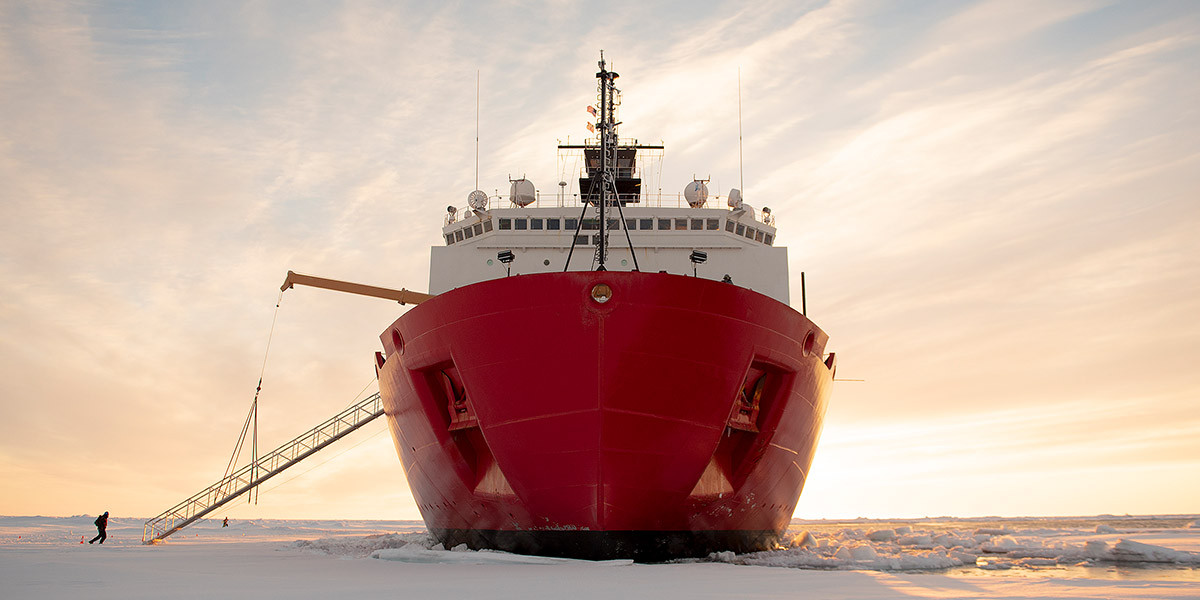China's Role in Arctic Affairs - Energy Academic Group

Icebreaker U.S. Coast Guard Cutter Healy (WAGB-20) is in the ice Wednesday, Oct. 3, 2018, about 715 miles north of Utqiagvik, Alaska, in the Arctic. (USCG / U.S. Coast Guard photo by Senior Chief Petty Officer NyxoLyno Cangemi)
China’s Role in Arctic Affairs
By Elizabeth Francis, Middlebury Institute of International Studies, International Environmental Policy ‘21
The implications of a changing Arctic affect both Arctic and non-Arctic states. Due to increased air temperatures and receding sea ice, the high seas are opening to allow for new transportation passages, the discovery of new mineral deposits, and harvesting of previously unavailable resources. As climate change progresses, many Arctic and non-Arctic nations are increasing their presence and activity in the region.
In 2018, China expressed its intentions and role in the Arctic, emphasizing its adherence to international norms, policy, and sovereignty of Arctic states but also claiming status as a “Near Arctic State” which previously did not appear in international law or policy.
This claim of “Near Arctic State” raised considerable concern and opposition from Arctic nations over potential infringement on the sovereignty and policies of Arctic states. The unprecedented claim raises key considerations in current Arctic policy surrounding the role of non-Arctic nations’ involvement. A new report issued by the EAG presents analysis of China’s claim in light of international norms, governance under the Arctic Council, and China’s increasing activity and investment in the region.
Analysis of China’s claim reveals its intentions of normalizing a presence to access resources and shipping passages. To solidify its role as an actor in the Arctic, China began considerable investments in deep-sea ports, railways, and research bases with countries such as Russia. The EAG report presents implications of China’s “Near-Arctic State” claim under international law and policy that will become progressively more important as activity in the Arctic increases.
LEARN MORE
Report available at https://nps.edu/web/eag/intern-research
Contact Elizabeth Francis at efrancis@middlebury.edu
EAG Contact: Kristen Fletcher at kristen.fletcher@nps.edu
Quarterly Newsletter
Surge is published quarterly by the Energy Academic Group and covers a divese range of energy-related topics. View archive

